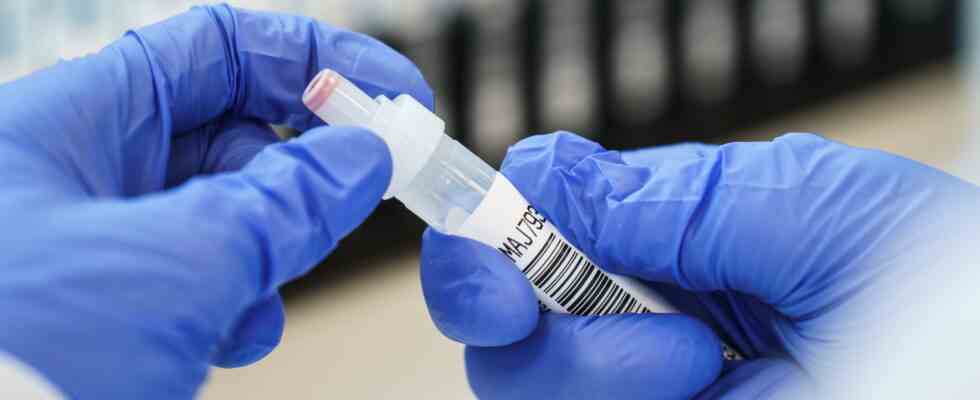Status: 11/18/2022 3:01 p.m
The corona variant BQ.1.1 continues to spread. Because of the high potential for infection, it is nicknamed Cerberus from Greek mythology – “hound of hell”. How dangerous is the variant?
BQ.1.1 is a descendant of the omicron subvariant BA.5. It is currently responsible for numerous new infections in the USA. But BQ.1.1 is also spreading more and more in Europe. The European disease control agency ECDC assumes that the BQ.1 variant, including its sublineages, could account for more than 50 percent of SARS-CoV-2 infections from mid-November to early December 2022.
The Robert Koch Institute writes in its current Covid-19 weekly reportthat the proportion of this pathogen in a sample in the week before last was more than eight percent, which corresponds to a quadrupling of the proportion in the last four weeks.
Responsible for the next big corona wave?
The WHO also has the subvariants of omicron in its sights. Many experts assume that BQ.1.1 will be responsible for the next big corona wave in Europe and North America before the end of November.
Finally, BQ.1.1 has a transmission advantage of more than ten percent over the currently dominant omicron subvariant BA.5. This was reported by Cornelius Römer from the Biozentrum at the University of Basel on Twitter in early October.
New changes in the spike protein
This means that people can become infected more quickly. Bioinformatician Römer observes BQ.1.1. since September and tweets: “Their relative share has more than doubled every week”. Compared to the omicron variant BA.5, the new subvariant brings with it further mutations in the spike protein.
The bioinformatician Richard Neher from the University of Basel points out in an interview tagesschau24 Regarding the high contagion potential of the BQ.1.1 virus variant:
The virus mutates at the sites where antibodies bind to the spike protein. And if the virus changes in these places, then these antibodies, which we have formed, for example, through vaccinations or surviving infections, no longer bind as well. The viruses are therefore no longer recognized so well and can then lead to an infection, although the antibodies are basically there.
Immune escape by mutation
The corona viruses penetrate the cells via the spike protein. And due to the mutations in the spike protein, the immune system can no longer recognize the virus as well. The result: the mutated virus can bypass the immune system even better than previous variants. The “immune escape” variant makes the “hellhound” so contagious – even for those who have been vaccinated and those who have recovered. An infected person infects 60 to 80 percent more people than an infected person with BA.5 – according to data specialist Gerstung from the DKFZ BR.
Omicron vaccines offer protection against severe courses
But there are also positive sides. After all, the “Hellhound” is a descendant of the Omicron variant and not a subtype of Delta – which is considered a potentially more dangerous mutation and has resulted in more hospitalizations. And since BQ.1.1 descends from BA.5, the BA.5 booster vaccination can be beneficial. American immunologist Anthony Fauci told CBS-News: “The bivalent BA.5 vaccine not only works well against the dominant BA.5 variant, but also protects against new omicron sublines of BA.5.”
In addition, the current corona vaccines continue to protect against severe courses and deaths – this was explained by the President of the German Immunological Society, Christine Falk. She also says that while BQ.1.1’s mutations suggested potentially more effective contagion, they didn’t mean that all defenses had been circumvented.
Already high basic immunity in the population
This means: According to immunologists, the protection against serious illness and death should generally withstand the recommended vaccinations in people with a healthy immune system.
The bioinformatician Neher bei also says so tagesschau24: “Nearly everyone now has a certain kind of immunity, whether it’s through vaccinations or through an infection that has been overcome. And this immunity doesn’t go away either. That means we don’t expect the severe courses that were there at the beginning again, when there was no immunity at all in the population.”

